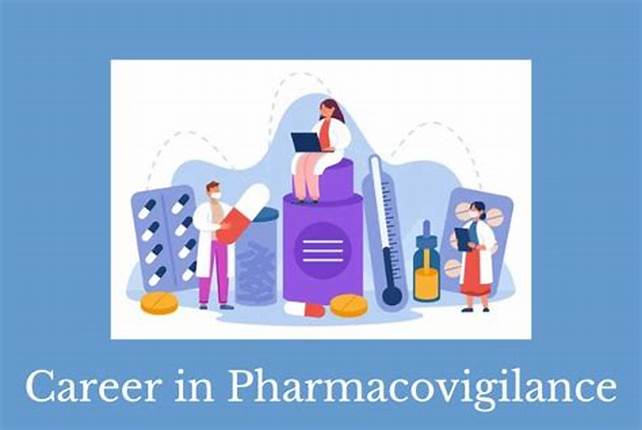For mid-level pharmacovigilance professionals, advancing in their career requires a combination of technical expertise, leadership skills, and strategic thinking. Here are some key tips to help guide your career development:
1. Deepen Your Expertise in Pharmacovigilance
- Specialize: Consider developing expertise in specific therapeutic areas or regulatory requirements (e.g., oncology, immunology, or regional regulations). This can set you apart in the competitive job market.
- Stay Current: Pharmacovigilance is a dynamic field with evolving regulations and technologies. Regularly read industry journals, attend webinars, and participate in conferences to stay informed about the latest trends.
- Master Advanced Tools: Familiarize yourself with the latest safety data analysis tools, signal detection methods, and reporting systems (e.g., ARGUS, VigiBase, and E2E pharmacovigilance processes).
2. Improve Your Leadership and Communication Skills
- Take on Mentorship Roles: Offer to mentor junior colleagues or take on leadership responsibilities in projects. This will help you develop management and coaching skills.
- Enhance Communication: Effective communication is key in pharmacovigilance, particularly when interacting with regulatory authorities, healthcare professionals, or the public. Sharpen your ability to present complex safety data clearly and concisely.
- Project Management: Gain experience in managing cross-functional projects. This will help you develop skills such as resource allocation, team coordination, and deadline management.
3. Expand Your Knowledge of Regulations and Compliance
- Regulatory Mastery: Stay up-to-date with evolving global regulations (e.g., ICH E2E, FDA, EMA, and WHO guidelines) and gain expertise in adverse event reporting, risk management, and benefit-risk assessment.
- Auditing and Inspections: Gain experience in pharmacovigilance audits, regulatory inspections, or clinical trial oversight to enhance your understanding of compliance issues and improve your organization’s readiness for inspections.
- Risk Management and REMS: Develop a deeper understanding of Risk Evaluation and Mitigation Strategies (REMS) and risk management plans, which are critical in ensuring the safety of marketed products.
4. Build Your Professional Network
- Join Industry Associations: Become involved in professional organizations like the Drug Information Association (DIA), the International Society of Pharmacovigilance (ISoP), and the American Society of Clinical Pharmacology and Therapeutics (ASCPT). Attend conferences, participate in forums, and use networking to learn from peers.
- Collaborate Across Functions: Collaborate with colleagues in regulatory affairs, clinical development, medical affairs, and marketing. These interactions will expand your perspective and open up new career opportunities.
5. Pursue Further Education and Certifications
- Advanced Certifications: Consider obtaining advanced certifications like the "Certified Pharmacovigilance Professional" (CPVP) or other relevant qualifications in pharmacovigilance, drug safety, or regulatory affairs.
- Advanced Degrees: A master's degree or other advanced qualifications in public health, regulatory affairs, or clinical research can further enhance your career prospects.
- Specialized Training: Enroll in specialized training programs for drug safety signal detection, epidemiology, or risk management, which are valuable for advancing to senior positions.
6. Leverage Technology and Data Analytics
- Data Analysis: Develop advanced data analysis skills (e.g., in R, SAS, or Python) for signal detection and safety data management. The ability to interpret complex data can improve your decision-making and make you a key contributor to strategic safety management.
- Artificial Intelligence (AI) and Machine Learning: Familiarize yourself with the role of AI and machine learning in pharmacovigilance for tasks such as case processing, signal detection, and adverse event reporting.
7. Seek Leadership Opportunities
- Lead Cross-Functional Teams: Volunteer to lead teams on safety signal evaluation, risk management plans, or clinical trials to gain experience in leadership roles.
- Develop Strategic Thinking: Start thinking about the bigger picture. How can you contribute to the strategic goals of your organization? Moving into senior leadership roles requires an understanding of business goals, budgeting, and resource planning.
- Career Path to Management: If you're interested in a management role, develop people management skills. Start by overseeing a team or managing projects to gain leadership experience.
8. Engage in Professional Development
- Personal Branding: Position yourself as a subject-matter expert in pharmacovigilance through thought leadership. Publish articles, contribute to industry blogs, or speak at conferences to enhance your professional reputation.
- Seek Feedback: Regularly seek feedback from your supervisors and colleagues to identify areas for improvement. Use this feedback to set development goals for your next career step.
- Work-Life Balance: Strive to maintain a healthy balance between work and personal life. Overworking can lead to burnout, so find strategies for managing stress and maintaining motivation.
By focusing on these strategies, mid-level pharmacovigilance professionals can position themselves for growth and take on greater responsibilities within their organization or industry.
To learn more from related topics, please visit our website or newsletter at https://medipharmsolutions.com/newsletter/


No Comments